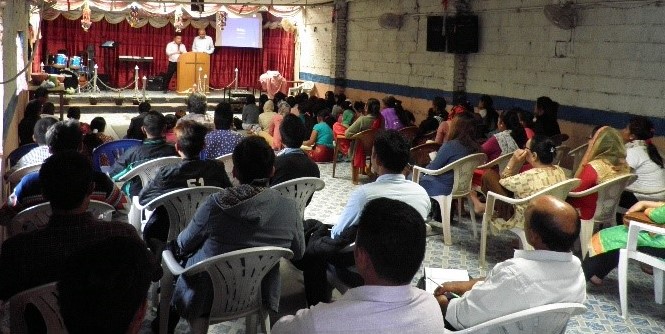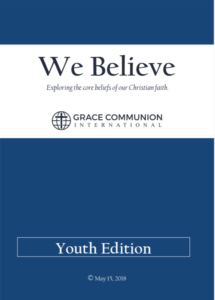Dear GCI Preachers,

When we preach, we must always make it our aim to proclaim the biblical gospel—the good news about Jesus and his saving work. This Christ-centered approach to preaching focuses much more on the grace of God than on human works. Though our sermons should address sin (the pain and hurt sin causes, and thus why God hates it), in doing so we must not imply that we are to rely upon ourselves for salvation. As James B. Torrance often said, we must not “throw people back upon themselves.” Gospel-focused preaching turns people away from themselves and towards Christ where, by the Holy Spirit, they can participate in Christ’s good and right relationship with the Father.
 In The Claim of Humanity in Christ, Alexandra Radcliff points out that in their writings, James B. Torrance and Thomas F. Torrance emphasize the relational nature of all aspects of Jesus’ atoning work on our behalf. They note that God, in love, created us for sonship—a filial relationship in which we find our true being in communion with God, in Christ, by the Holy Spirit. This means that our justification (right standing) with God is relational, not legal. It also means that our sanctification (our growth in Christ) is relational, not legal. Instead of merely imitating Jesus’ example (his life of obedience), we actually participate in our Lord’s relationship with the Father in the Spirit.
In The Claim of Humanity in Christ, Alexandra Radcliff points out that in their writings, James B. Torrance and Thomas F. Torrance emphasize the relational nature of all aspects of Jesus’ atoning work on our behalf. They note that God, in love, created us for sonship—a filial relationship in which we find our true being in communion with God, in Christ, by the Holy Spirit. This means that our justification (right standing) with God is relational, not legal. It also means that our sanctification (our growth in Christ) is relational, not legal. Instead of merely imitating Jesus’ example (his life of obedience), we actually participate in our Lord’s relationship with the Father in the Spirit.
Because human nature tends to prioritize law over relationship, a relational view of sanctification is not easy to grasp. As a good friend of mine likes to point out, it’s easier to keep the law living alone in a cave than to sustain a dynamic, loving relationship. Why? Because relationship requires proximity, which brings with it the risk of sinning against the other person. Though living alone may be easier, a life devoid of relationship would be relatively meaningless. When it comes to sanctification, relationship trumps legalism.
Just as our standing with God is relational, not legal, our standing with each other as Christians should be based on the relationship we share together with God, in Christ, by the Holy Spirit. When we view the church for what it truly is—people-in-community being transformed together in Christ—the church becomes far more than a social club that shares certain moral principles. While moral principles are good, they cannot transform us. Our transformation, which is the fruit of our sanctification, comes only in Christ as he, by the Spirit, leads us into personal, interactive relationship with the Father. In and through that relationship, we receive and respond to all that God has for us, including all that Jesus has accomplished on our behalf. Our transforming interaction with God occurs as we read and hear the Word of God, pray, worship and otherwise live out our lives in communion with the Father, Son and Spirit.
Those who view sanctification as primarily legal tend to be burdened by a fear of being condemned by God for not “measuring up.” Though they likely understand that we are justified by grace, they think that we are sanctified by our works (obedience to law). However, knowing that none of us exhibit full sanctification (we are not perfect), they carry this fear of God’s rejection. Though they surely know what is said in John 3:16—God so loved the world that he gave his one and only Son—it seems they are unaware of John 3:17—For God did not send his Son into the world to condemn the world, but to save the world through him. This fear of God’s condemnation-rejection tends to arise from a common misunderstanding where justification is equated with the gospel and sanctification is equated with Christian living, as though the two are separate or sequential. According to this misunderstanding, God justifies us by grace, but then we must sanctify ourselves through our own works. In contrast, the apostle Paul teaches that justification and sanctification are both complete in Christ, and are to be received from him as we trust him to give them to us as gifts of grace (1 Cor. 1:30. NASB).
Sanctification is also sometimes misunderstood as involving our independent response to Christ’s saving work, which “maintains” our salvation. The truth is that sanctification is a gift that comes from our new life in Christ. The only responses God is interested in are those enabled by the ministry of the Spirit who frees us to receive and share in Christ’s own responses made for us. So, while we do respond, we never respond alone. Our responses are the fruit of our fellowship with Christ by the Spirit. Our primary response is one of trusting in the ministry of the Spirit to provide us a share in Christ’s own sanctification—and even that trust is a gift of God’s grace!
Though gratitude is a primary way we show our thanks for God’s redeeming work, it can easily collapse into a work (an effort we work up) to maintain God’s grace (to keep us on God’s “good side”). Certainly we are grateful, and we should show gratitude, but not as a work of sanctification that we generate in response to the gift of our justification. Sanctification, and the gratitude that goes with it, is the fruit of our participatory relationship with God, in Christ, by the Spirit.

The New Testament uses various metaphors, images and parables to describe our relationship with God as being relational rather than legal. For example, we are branches nourished by Christ, who is the vine (see the picture at right); we are stones being built into a holy temple; we are the body of Christ. These illustrations show that as we grow and share in relationship with God, the working of our sanctification follows spontaneously and organically.
Perhaps you had a teacher with the gift of bringing out the best in her students. Through your tutoring relationship with her, you flourished and blossomed. I had a teacher like that who taught me math in elementary school. Going to a new level of understanding in algebra was the by-product of the respectful relationship I had with that teacher. I worked hard, not merely for a good grade, but because, with that teacher’s help, I was able to solve more problems and thus no longer feared taking formerly-dreaded math tests.
This example from my life shows what it means to “fix our eyes on Jesus” rather than on the law and our works. We join in with Jesus, so to speak, not because we have to (legalism) but because we want to (loving relationship). As Paul notes, the law was not given to save us—it was given to show that we don’t measure up. It is Jesus, not the law, who offers us life-giving fellowship with God. This communion, which is a gift from God, comes to us through the Holy Spirit’s ongoing ministry. By the Spirit, we trust Christ to give us a share of his new (resurrection) life, which means our participation in Jesus’ own righteousness—his perfect, good and right relationship with God and with all people. This participation involves obedience “from the heart” (Romans 6:17), which Paul calls “the obedience that comes from faith” (Romans 1:5, 16:26).
Let me put it this way: ethical behavior is a matter of following God’s will as we trust in the ministry of the Holy Spirit to enable and empower us to daily receive the gift of our new life in Christ and then, living it out, having fellowship with Christ by the Spirit. In other words, sanctification is not about self-motivated will—it’s not about trying hard to meet the demands of God’s law. Rather, sanctification is a gift of grace that we trust God to give us—the gift of participating in Jesus’ own obedience, which flows from his loving and faithful relationship with the Father by the Spirit.
As Paul tells us, our response to this gift of grace is to “work out” our salvation (Phil. 2:12). We do so by placing our faith and trust in God’s Word and Spirit to transform us, with the result being the fruit of Christ’s own righteousness being born in our lives. We can count on this happening, for as Paul also tells us, “it is God who works in you to will and to act in order to fulfill his good purpose” (Phil. 2:13).
Sanctification provides us the benefit of our union with Jesus in which God, through the power and presence of the Spirit, delivers us from our broken, sinful natures, transforming us into the holy image of Jesus through our participation in his life, death, resurrection and ascension. This is how we become transformed and thus conformed to Christ. This is our sanctification.
Rejoicing that the gift of our sanctification is making us closer to God,
Joseph Tkach
PS: Looking for additional insights from the Torrances concerning our sanctification in Christ? Click here for a series of Surprising God posts on Dr. Radcliff’s book from GCI Update Editor, Ted Johnston.


 Our 15th annual LiLY conference was held in Beachwood, OH, on April 27-29. Its theme was “Rest in the Lord” with the theme scripture, “Come to me, all you who are weary and burdened, and I will give you rest” (Matt. 11:28). God blessed us with an attendance of 91 women, including 11 young women (ages 13-17) who participated in our “Bonfire-teen session” facilitated by Tammy Johnson.
Our 15th annual LiLY conference was held in Beachwood, OH, on April 27-29. Its theme was “Rest in the Lord” with the theme scripture, “Come to me, all you who are weary and burdened, and I will give you rest” (Matt. 11:28). God blessed us with an attendance of 91 women, including 11 young women (ages 13-17) who participated in our “Bonfire-teen session” facilitated by Tammy Johnson.
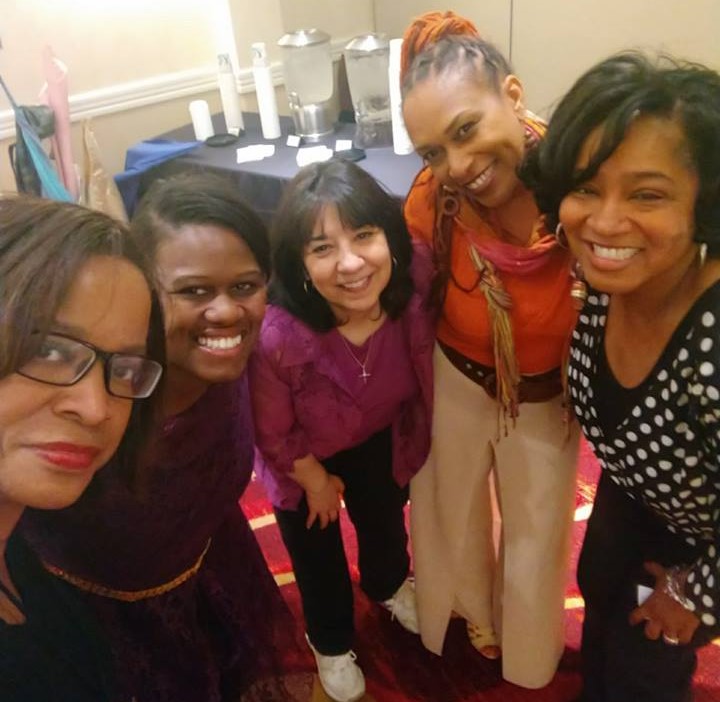
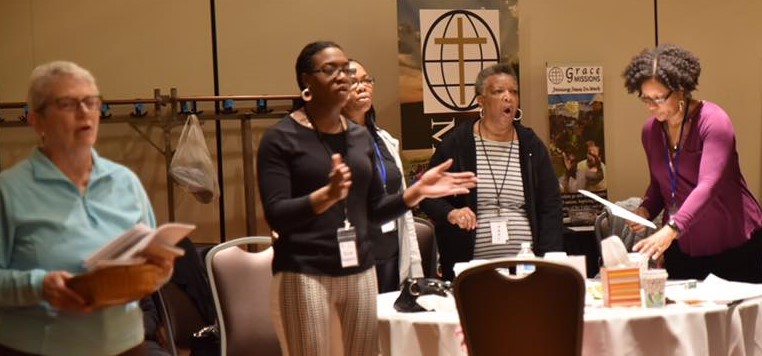
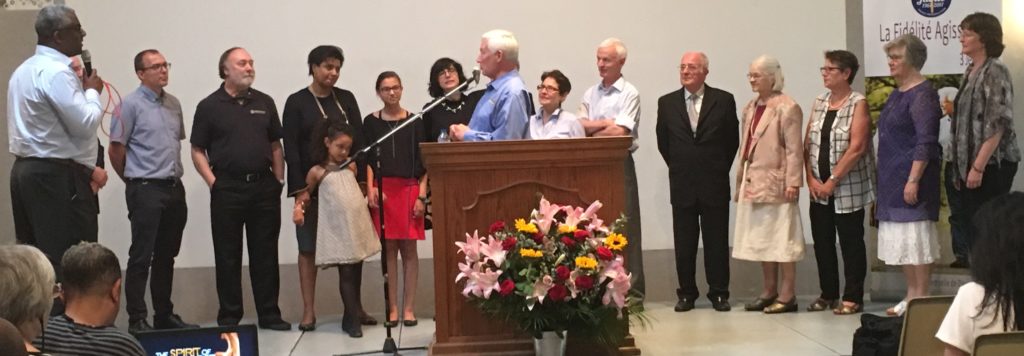

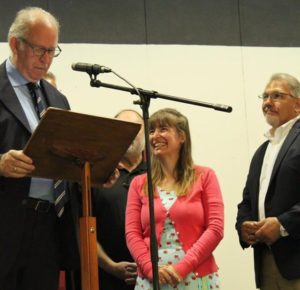

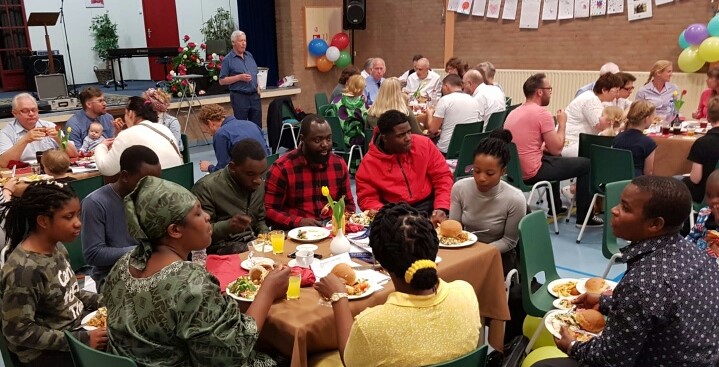
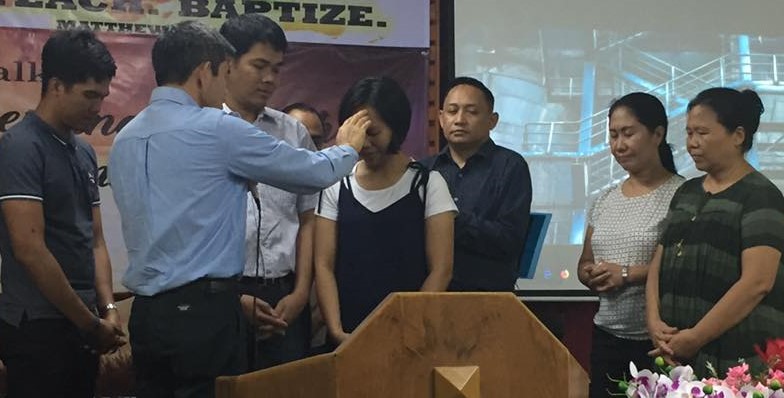
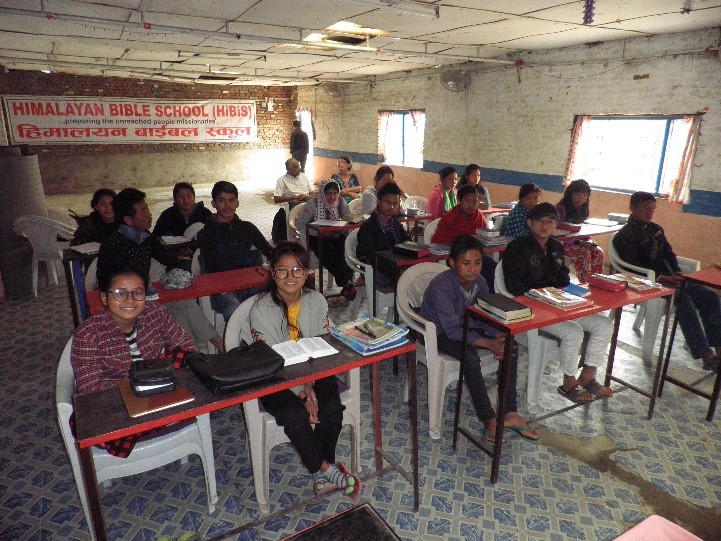
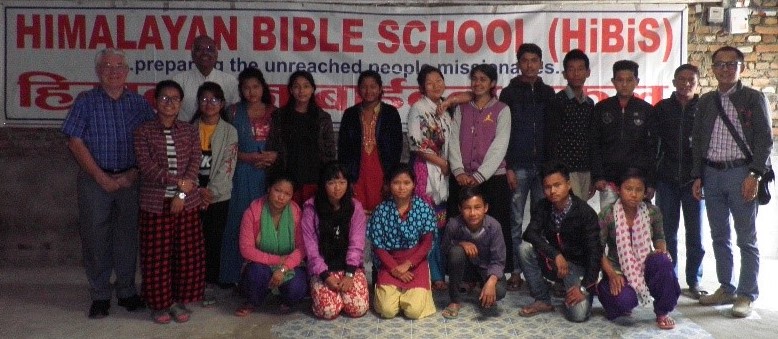
 As we addressed the students in an interactive session through a translator, their responses made it obvious that here are some young people with great potential for future involvement in the commission of taking the gospel to Nepal. Their studies include courses in theology and pastoral care. After the three months of study is over, the students return home, where they assist their local pastors in practical ways for nine months. The hope is that some of the students will become fully engaged as pastors and missionaries in their rugged and challenging country.
As we addressed the students in an interactive session through a translator, their responses made it obvious that here are some young people with great potential for future involvement in the commission of taking the gospel to Nepal. Their studies include courses in theology and pastoral care. After the three months of study is over, the students return home, where they assist their local pastors in practical ways for nine months. The hope is that some of the students will become fully engaged as pastors and missionaries in their rugged and challenging country.